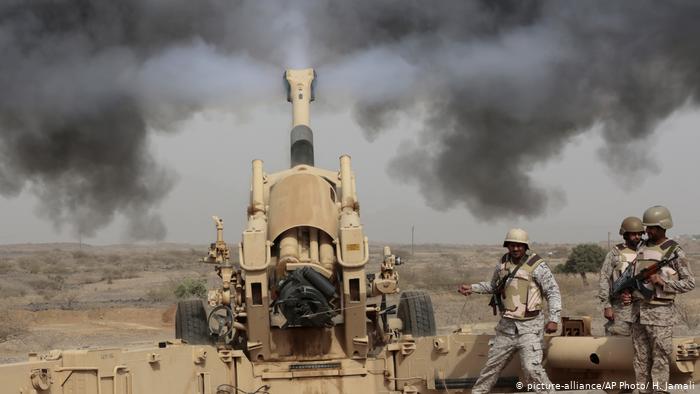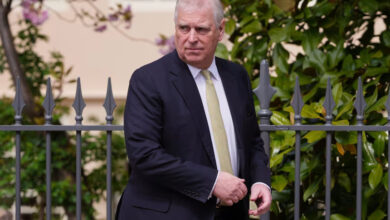
LONDON (Reuters) – Britain broke the law by allowing arms sales to Saudi Arabia that might have been used in Yemen’s war, a court ruled, after activists said there was a clear risk the weapons could be operated in violation of human rights legislation.
While the court’s decision does not mean Britain must immediately halt arms exports to Saudi Arabia, it does mean that there is a stay on the granting of new export licenses to sell arms to the kingdom – Britain’s biggest weapons purchaser.
The United Nations has described the conflict in Yemen, which has killed tens of thousands of people including thousands of civilians, as the world’s worst humanitarian crisis.
“The Court of Appeal has concluded that the process of decision-making by the government was wrong in law in one significant respect,” judge Terence Etherton said.
Handing down the ruling, he said the government made “no concluded assessments of whether the Saudi-led coalition had committed violations of international humanitarian law in the past, during the Yemen conflict.”
International Trade Minister Liam Fox said he disagreed with the judgment and would seek permission to appeal.
“Alongside this we are carefully considering the implications of the judgment for decision making,” he said.
“While we do this we will not grant any new licenses for export to Saudi Arabia and its coalition partners which might be used in the conflict in Yemen.”
Britain is the world’s sixth largest seller of arms, after the United States, Russia, France, Germany and China, according to the Stockholm International Peace Research Institute (SIPRI).
Saudi Arabia accounted for 43 percent of Britain’s global arms sales in the past decade.
Fox told lawmakers Britain had always taken its export control obligations very seriously and would continue to do so.
Britain had “fully and robustly engaged” with incidences of concern. “Our whole assessment has been infused with IHL (international humanitarian law) considerations, indeed everything was looked at through the prism of IHL,” he said.
YEMEN
The legal action against the British government was brought by the Campaign Against the Arms Trade, which wants to end the global arms trade and argued that British weapons were likely to have been used in Yemen in violation of human rights law.
A Western-backed alliance led by Saudi Arabia and the United Arab Emirates intervened in Yemen in 2015 to try to restore the internationally-recognized government to power after the Iran-aligned Houthis seized the capital, claiming to fight graft.
The war has killed tens of thousands of people including civilians and children and has put 10 million people at risk of famine and the world’s worst cholera epidemic.
“The decision of the court today does not mean that licenses to export arms to Saudi Arabia must immediately be suspended,” the British judge said.
“It does mean that the UK government must reconsider the matter, must make the necessary assessments about past episodes of concern, allowing for the fact that, in some cases, it will not be possible to reach a conclusion.”
The Campaign Against the Arms Trade welcomed the judgment.
“The Saudi Arabian regime is one of the most brutal and repressive in the world, yet, for decades, it has been the largest buyer of UK-made arms,” said Andrew Smith from the organization. “The arms sales must stop immediately.”
The opposition Labour Party said ministers had wilfully disregarded the evidence that Saudi Arabia was violating international humanitarian law in Yemen, while nevertheless continuing to supply them with weapons.
“What we now need is a full parliamentary or public inquiry to find out how that was allowed to happen, and which Ministers were responsible for those breaches of the law,” said Emily Thornberry, the party’s foreign affairs spokeswoman.
Editing by Alistair Smout, William Maclean




